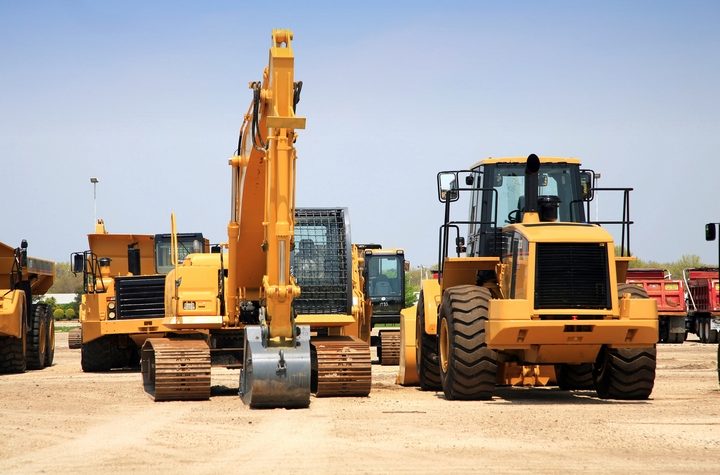Top Equipment Rental Company for Boom Lift Rental and More: Your Go-To for Construction Demands
Top Equipment Rental Company for Boom Lift Rental and More: Your Go-To for Construction Demands
Blog Article
Essential Tips for Taking Care Of Heavy Tools Rental Arrangements and Logistics Successfully
Successfully managing heavy devices rental contracts and logistics is vital for the success of any type of project that relies on these resources. An extensive understanding of rental terms, coupled with precise analysis of devices requirements, lays the foundation for favorable negotiations.
Understand Rental Terms
Comprehending rental terms is vital for successful hefty tools administration. Familiarity with the details terms of a rental agreement can significantly influence functional performance and cost-effectiveness. Key parts normally include rental period, payment structure, and upkeep responsibilities. The rental duration specifies the duration for which the equipment is rented, affecting budgeting and job timelines. Settlement structures usually vary, including daily, weekly, or monthly rates, which require specific calculations to prevent unforeseen expenditures.
Additionally, it is important to comprehend the upkeep responsibilities detailed in the contract. Usually, rental business maintain the devices, however understanding who is in charge of routine checks and repairs is essential to stop operational interruptions. Furthermore, terms might include clauses worrying liability for problems or theft, which can have severe monetary effects otherwise properly understood.

Assess Tools Requirements
Analyzing devices demands is an important step for any type of task manager aiming to maximize source allotment and improve operational efficiency. This procedure entails a complete evaluation of the task demands, consisting of particular tasks, timelines, and the kind of tools necessary to achieve preferred results.
Begin by recognizing the extent of the project and the jobs that will certainly be executed. Think about variables such as the surface, the range of procedures, and any kind of possible challenges that could influence tools option. Involving with staff member who will operate the machinery can provide important insights into practical demands and preferences.

Next, evaluate the capacity and capabilities of available tools choices. It is important to match the right tools to the jobs at hand, guaranteeing that it can handle the anticipated work without jeopardizing security or efficiency.
In addition, consider the rental period and regularity of usage. Recognizing these components can help figure out whether acquiring or renting is the most cost-efficient remedy. By performing a thorough analysis of tools demands, task managers can make enlightened choices that cause improved performance and minimized operational expenses.
Negotiate Successfully
As soon as the equipment requirements are plainly recognized, the next step entails effective settlement with rental business to secure positive terms. Begin by researching different rental firms to understand their prices frameworks, inventory schedule, and credibility.
When approaching the settlement table, be clear concerning your requirements, including the kind of devices, rental period, and any extra solutions you might require. This openness allows rental companies to give tailored remedies that can meet your specific needs (mini excavator rental). Do not wait to request for price cuts, specifically for long-term rentals or bulk orders, as many firms want to supply giving ins to protect larger contracts
These aspects can considerably influence the general price and ought to be clearly described in the rental arrangement. Guarantee that all agreed-upon terms are recorded in writing to that site stop misconceptions and protect your rate of interests throughout the rental duration.
Coordinate Transportation Logistics
Collaborating transport logistics is an important facet of managing heavy tools rental agreements. Efficient transport guarantees that devices is supplied on schedule and in ideal problem, thereby lessening downtime and boosting project efficiency. To accomplish this, it is important to develop an extensive logistics prepare that outlines the entire transportation process from pickup to delivery.
Begin by examining the particular transportation demands based upon the type and dimension of the devices entailed - forklift rental. Engage with dependable transport companies that focus on hefty tools to ensure they possess the required expertise and equipment, such as flatbed trucks or specialized trailers. Discuss factors such as weight restrictions, route constraints, and needed licenses to avoid unanticipated hold-ups
In addition, keep open communication with both the rental company and the transportation service provider to coordinate schedules properly. Verify all details, consisting of pick-up and drop-off times, to make sure everyone is straightened and prepared. Last but not least, establish contingency strategies to attend to any type of potential disturbances, such as unfavorable weather or website traffic problems, which may affect the transport timeline. By thoroughly collaborating transportation logistics, you can promote the integrity of your rental arrangement and help with smooth task execution.
Prepare For Upkeep and Support

In addition, it is essential to connect straight with the rental copyright pertaining to upkeep obligations. Some contracts might include maintenance as component of the rental solution, while in various other instances, the obligation might fall on the renter. Comprehending these terms will help stay clear of unexpected costs and responsibilities.
On top of that, having accessibility to technological support can be important. Guarantee that the rental business provides 24/7 assistance or an emergency call, permitting swift resolution of any equipment problems. Training your group on appropriate devices use and routine checks can additionally considerably enhance functional effectiveness.
Final Thought
In conclusion, reliable management of hefty equipment rental agreements and logistics depend upon a complete understanding of rental terms, accurate analysis of equipment requirements, and adept settlement skills. Collaborating transportation logistics and preparing for upkeep even more boost operational effectiveness. By implementing these methods, organizations can alleviate risks, control costs, and make sure that projects advance efficiently and within recognized timelines. Stressing clear communication with all stakeholders stays essential in browsing the intricacies of tools service and logistics monitoring.
Successfully taking care check of heavy equipment rental contracts and logistics is critical for the success of any job that depends on these sources. By extensively evaluating and comprehending these rental terms, services can make informed choices, mitigate risks, and make certain that their hefty tools monitoring straightens with job objectives and monetary restrictions.Collaborating transportation logistics is an important element of handling heavy equipment rental agreements.In conclusion, reliable monitoring of heavy equipment rental agreements and logistics joints on a thorough understanding of rental terms, precise analysis of devices requirements, and proficient negotiation skills. Stressing clear interaction with all stakeholders remains important in navigating the complexities of devices leasing and logistics administration.
Report this page